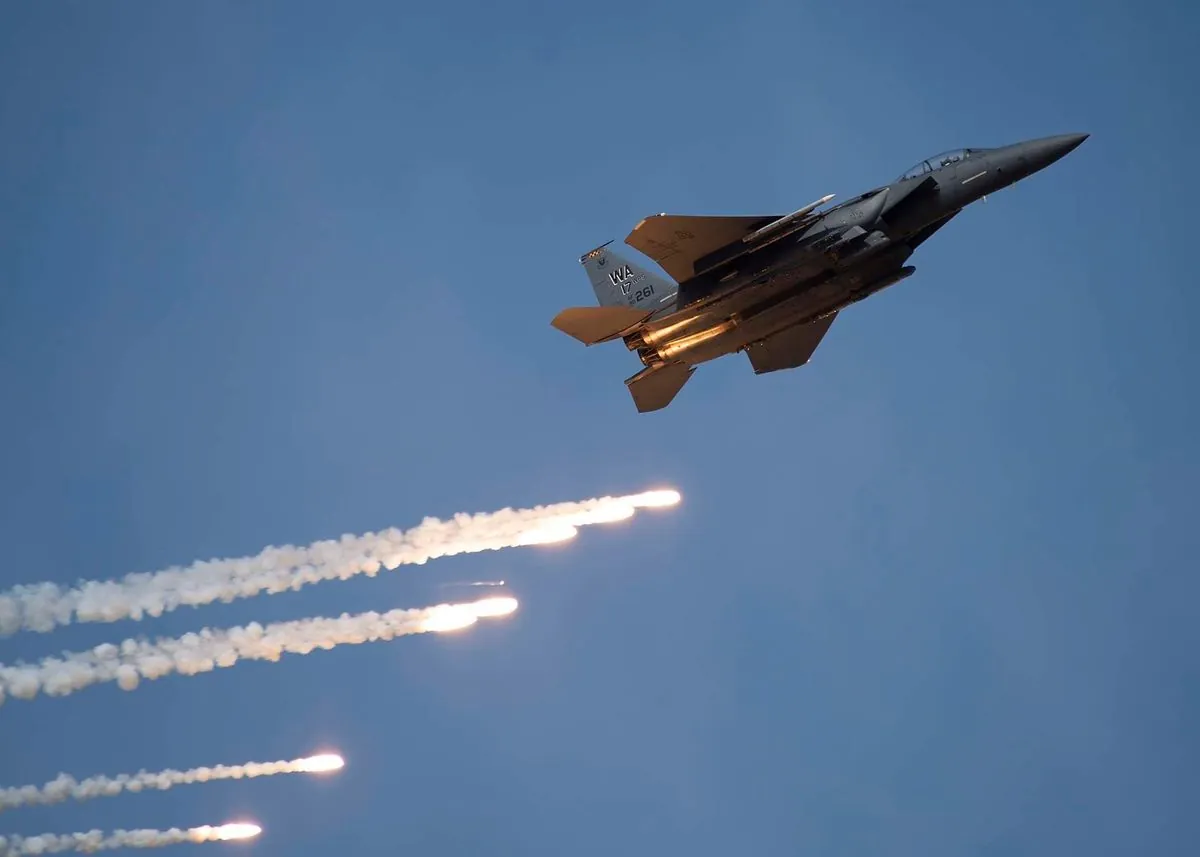In an unprecedented move, Japan's Self-Defense Force (SDF) fired flares at a Russian military patrol aircraft that violated Japanese airspace near Rebun Island, Hokkaido, on Monday, September 18, 2024. This incident marks a significant escalation in Japan's efforts to protect its territorial integrity.
The Russian aircraft reportedly made three separate incursions into Japanese airspace, prompting the SDF to dispatch F-15 Eagle and F-35 Lightning II fighter jets in response. These advanced aircraft, known for their all-weather capabilities and stealth technology, issued radio warnings to the Russian military before resorting to firing flares during the third violation.
Yoshimasa Hayashi, the Japanese government spokesperson, confirmed that this was the first instance of the SDF firing flares as part of an "anti-airspace violation action." The decision to use flares represents a significant shift in Japan's approach to airspace defense, which has been evolving since the establishment of the Air Self-Defense Force in 1954.
This incident occurs against the backdrop of ongoing tensions between Japan and Russia. The two nations have not signed a peace treaty since World War II, primarily due to unresolved territorial disputes, particularly concerning the Kuril Islands. Japan's northernmost main island, Hokkaido, and its surrounding smaller islands like Rebun, are strategically important in this context.
Japan's response to the airspace violation aligns with its National Security Strategy, adopted in 2013, which emphasizes the importance of maritime and air defense. This strategy reflects Japan's commitment to protecting its exclusive economic zone, which extends up to 200 nautical miles from its coastline.
The Japanese government has formally protested to Russia through diplomatic channels, demanding measures to prevent future airspace violations. This diplomatic approach is consistent with Japan's constitutional commitment to renounce war and the use of force in settling international disputes.
"Our SDF fighter jets - F15 and F35 - warned the Russian military over the radio before firing the flares during the third incursion."
This incident may have implications for the broader geopolitical landscape. Japan, a member of the United Nations since 1956, may seek international support in addressing these violations. Meanwhile, Russia, as a permanent member of the UN Security Council, holds significant influence in global affairs.
The proximity of Russia's Pacific Fleet, headquartered in Vladivostok, to Japanese territory adds another layer of complexity to the situation. Both nations conduct regular diplomatic talks to address various issues, including territorial disputes, but incidents like this recent airspace violation can potentially strain these diplomatic efforts.
As Japan continues to navigate its complex relationship with Russia, balancing assertive defense measures with diplomatic engagement, the international community will be closely watching how this situation unfolds in the coming days and weeks.
